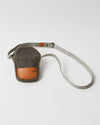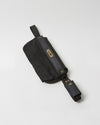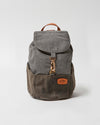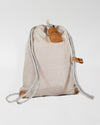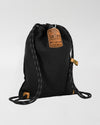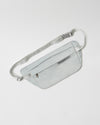Putting the Brakes on Fast Fashion
Clothing is something we as human beings can’t live without and our complex relationship to it has evolved over the centuries. In our modern world we’re increasingly concerned with the state of our climate and the footprint we’re leaving behind as a global society. It’s undeniable that fast fashion is a contributing factor to the state our planet is in. We have to start thinking about what fast fashion really costs and how to put an end to it.
What is fast fashion?
Fast fashion is a term used by the fashion retail industry to describe clothing that is trendy and inexpensively made. Disposable by nature, the concept is driven by a growing desire from society to purchase clothing without the high cost, wearing pieces once or twice and disposing of them before the next trend comes along.
How fast fashion affects the environment
While our wallets may enjoy the break that fast fashion provides, the costs to our environment are far reaching and almost impossible to fully grasp. The production of cheap textiles, like polyester, releases an increased amount of greenhouse gases into the environment. Garments made from this man-made fabric take longer to breakdown than natural fabrics made of cotton or other natural fibers. The massive amount of space required to manufacture cheaper clothing, along with the transportation needed to move it all across the globe also contributes to the negative effects fast fashion has on our environment.
How it affects the workers who make it
Because labor costs are some of the highest that face any clothing company, a lot of fast fashion is produced in parts of the world where unregulated manufacturing facilities operate without or just outside of labor laws. Workers are often underage, underpaid and work in deplorable conditions. While our new $12 shirt can feel like a bargain to us, the person that got paid pennies a day for putting it together sees that shirt from a very different perspective.
Long term effects on how we buy clothing
Fast fashion is a relatively new term for an industry that’s been around for decades. Some retailers have reached worldwide success for years by pushing inexpensive clothing out their doors. We are led to believe that we’re saving money, but in the long run we end up spending more, as our attention is fractured by one deal after the next. Suddenly our cart is filled with a selection of $12 shirts and we’ve spent just as much money, or more, on disposable fashion, rather than investing in a couple of pieces of quality clothing.
How to change our mindset
Only a few decades ago a lot of clothing, bags, shoes and accessories were homemade or made by local craftspeople. The few pieces of clothing that were purchased might have cost more but they were taken care of, repaired when needed and loved, one season after the next. It takes shifting our mindset, just a little, if we want to curb our fast fashion spending and transform that way of thinking back to buy quality over quantity. If we all do our part, just a little at a time, bringing an end to fast fashion won’t be an easy fix but it will be rewarding.
How is LOCTOTE® playing its part?
In a world that’s bombarded with “fast fashion,” LOCTOTE is driven by sustainability and by creating products that are designed to outlive their owners.
Sustainable Manufacturing
We’re working with a new leather supplier who is committed to environmental excellence and sustainability in the industry. They’ve developed their own trademarked manufacturing process, LITE, which stands for “Low Impact To the Environment.” We’ve worked closely together to ensure that the leather we use is not only sustainable, but ethically sourced.
Sustainable Packaging
For all upcoming production runs, we’ve chosen to use a corn based plastic alternative for our packaging, which is biodegradable, carbon-neutral and even edible (although we don’t suggest trying this at home). This corn based “plastic” is both a renewable resource and creates much less greenhouse gas emissions than conventional plastic production - it represents a reduction of 68%.
Environmental Commitments
We believe that actions can make a real difference, which is why we are proud to be a part of 1% for the Planet, a global movement inspiring businesses to support environmental solutions.

